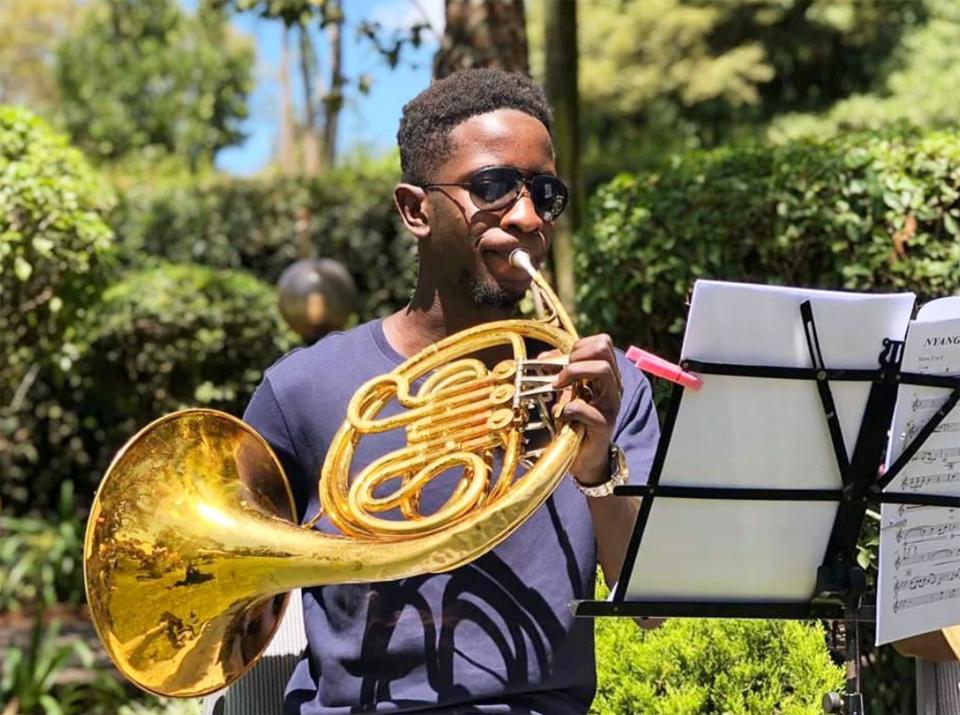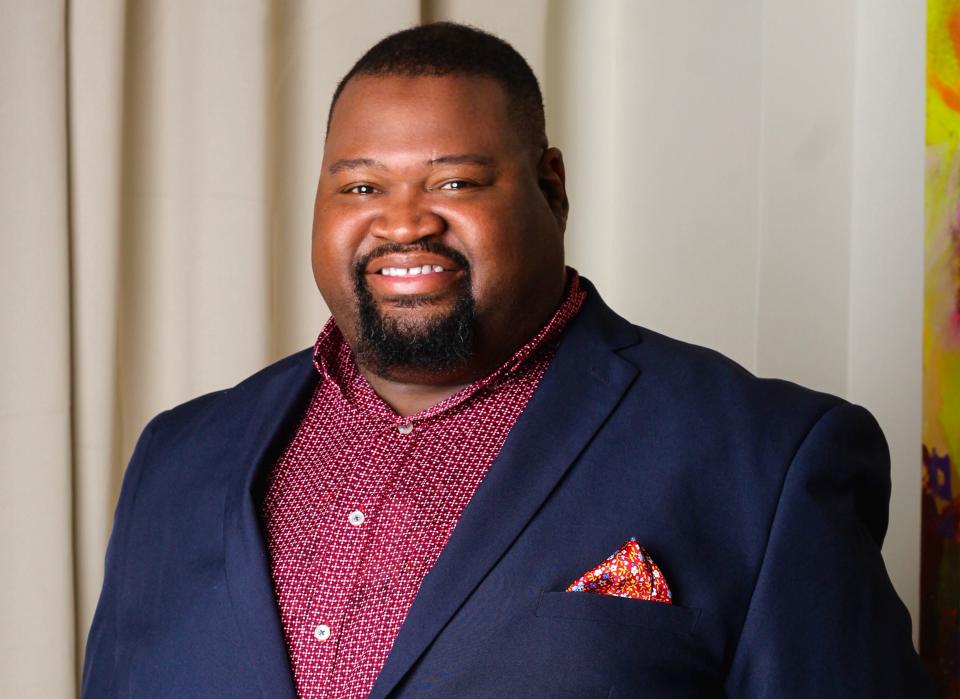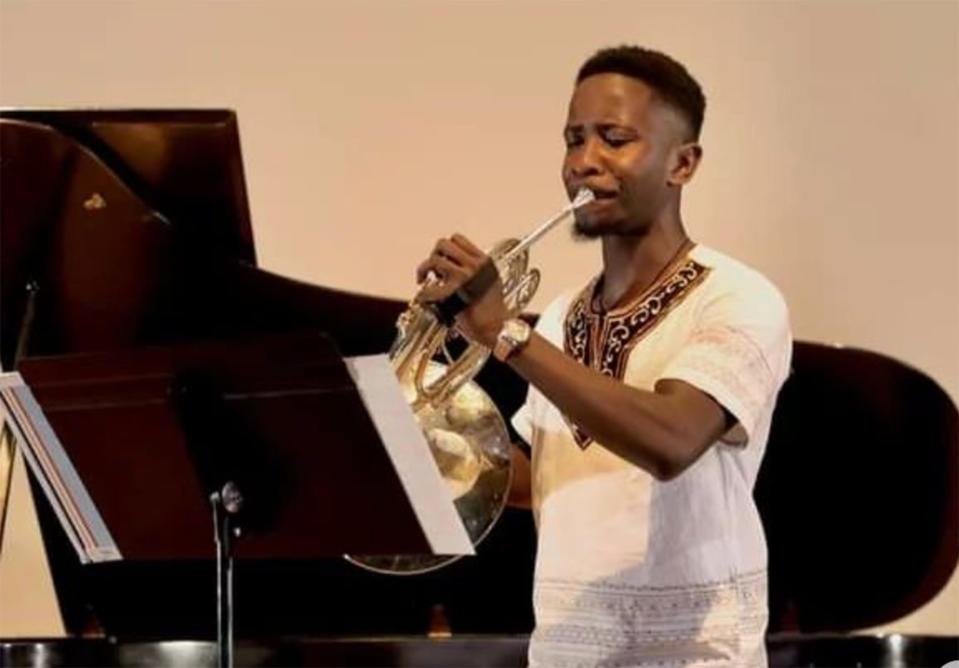Montgomery Symphony giving Beethoven the rhythm of Kenya
Just like any language, music can take on an accent when filtered through another culture. For instance, imagine classical works from German composer Ludwig van Beethoven expressed through the arts and history of East Africa.
On Monday, Nov. 20, 7:30 p.m. at Troy University's Davis Theatre for the Performing Arts, the Montgomery Symphony Orchestra will put that exact scenario to the test with the U.S. premiere of "Beethoven in Kenya," composed by Nairobi, Kenya, native Shaka Marko Lwaki.
Tickets for this MSO Masterworks concert range from $15 to $40, and are available online at eventbrite.com.
Come early for a pre-concert talk at 6:30 p.m. to learn more about the music.

"It's really, really exciting for me, seeing how our rhythms are being interpreted by people to whom those rhythms are not native to," said Lwaki, a member of MSO's horn section and a music student at Alabama State University. "It's like having a foreigner speaking your language... I hope the audience will embrace it."
This concert will feature a special guest appearance by the Alabama State University percussion studio.
Also that night, baritone Tyrone Hayes will sing a solo piece for Gustav Mahler’s "Songs of a Wayfarer," a setting of the composer’s poetry that describes a youthful experience with nature and love.
Hayes is a New Orleans native who has a master’s degree in voice performance from Southeastern Louisiana University and bachelor’s degree in music from the University of New Orleans. He is a doctor of arts candidate at William Carey University. Hayes is on the voice faculty at ASU, where he also serves as Director of Opera Workshop, and Trebled Soul Vocal Jazz Ensemble.

The evening concludes with a performance of German composer Johannes Brahms’ Second Symphony.
MSO conductor Jamie Reeves said the symphony's connection to ASU is important, and that several of ASU's music department faculty play for the symphony.
"I'd say our collaborations with Alabama State in the future (are) very likely to continue," Reeves said. "It helps us to build the community and bring more students into the audience."
Merging cultures with music
Replicating the feelings, sensations and rhythms from an indigenous culture is a challenge that has required a lot of practice. Performing Lwaki's composition is helping the orchestra develop even more as musicians, Reeves said.
"He's notating rhythms that are passed down from an oral tradition in Kenya," Reeves said.
The instruments will be the same, though Reeves said they'll rely more on percussion than normal.
"We're playing Kenyan music and Beethoven at the same time," Reeves said. "It's really exciting."

Lwaki has been in the U.S. since 2022. He's a sophomore at ASU, seeking a degree in French horn performance. Before coming to Montgomery, he worked in Nairobi as a music arranger, composer, librarian, French Horn performer, and tutor for various ensembles, organizations, and schools.
He said the idea for merging two different worlds of music together in "Beethoven in Kenya" came about in 2019 and 2020 as the world was preparing to celebrate Beethoven's 250th anniversary.
"It's music from Beethoven's symphonies, except for the 9th, infused with rhythms and traditional idioms from Kenya — from different communities across Kenya," Lwaki said.
Some examples of these fusions are:
The melancholic theme from the second movement of Beethoven’s Seventh Symphony with idioms from the Maasai community in Southern Kenya.
The first movement from Beethoven’s Fifth with a Kenyan Rhumba-like genre known as zilizopendw (“those which were loved" — similar to "golden oldies" in the U.S.).
The jovial theme from the last movement of Beethoven’s Seventh with catchy dance rhythms from the Luhya community in Western Kenya.
With African music, Lwaki said the biggest pillars of it comes from rhythm, instead of melody and harmony. He said he had to stretch hs creativity to merge the music, and still keep it as familiar as possible.
Of course, it came together during the pandemic. Lwaki said the piece's first partial performance was a virtual one — recorded by artists from the Nairobi Orchestra in Kenya, with the help of musicians from around the world. While isolated, they recorded individual parts that were later mixed together.
"That was exciting to listen to," he said.
Reeves said Lwaki has a bright future ahead as a performer and a composer.
"We hope to work with him again for many years to come," Reeves said.
Lwaki said he's been enjoying the "authentic American experience" while living in Alabama.
"I think I personally like the pace of life here," Lwaki said. "It's ideal, especially for me coming here as a first time foreigner to the U.S. It's helped me integrate into America.... I think here in. the South, I'm able to experience what America is truly like."
Montgomery Advertiser reporter Shannon Heupel covers things to do in the River Region. Contact him at sheupel@gannett.com
This article originally appeared on Montgomery Advertiser: Montgomery Symphony giving Beethoven the rhythm of Kenya

